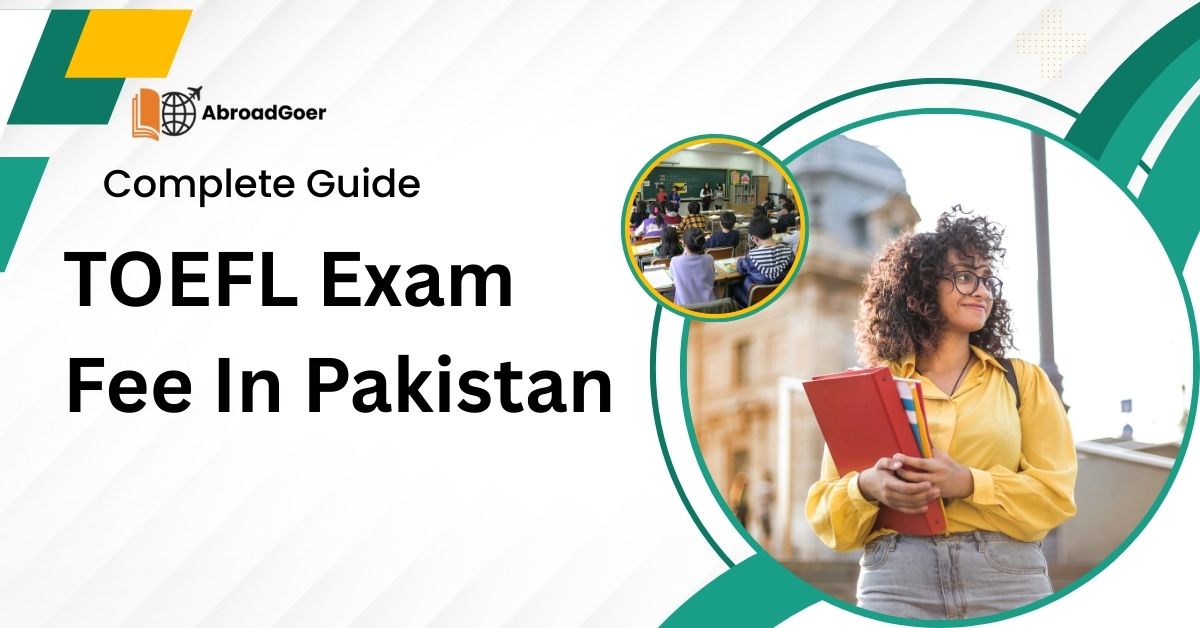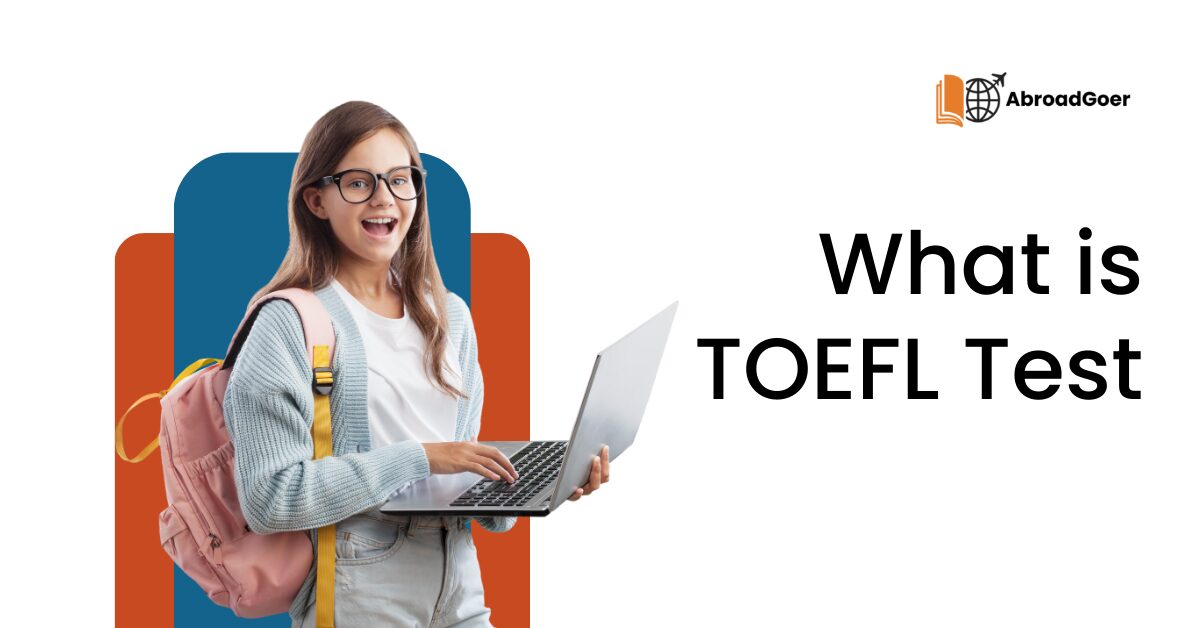Complete Guide TOEFL Exam Fee in Pakistan & Benefits
The TOEFL Exam Fee in Pakistan (Test of English as a Foreign Language) is a very important standardized exam that evaluates the English proficiency of people whose first language isn’t English. Many universities use it when considering students for admission, especially international students. It’s also widely used for immigration and professional purposes. The TOEFL exam looks at four main skills: Reading, Listening, Speaking, and Writing. There are two main formats: the iBT (Internet-based Test) and the PBT (Paper-based Test).
The TOEFL iBT is the current standard. It evaluates the same four skills (Reading, Listening, Speaking, and Writing) but uses a computer-based format. Scores for the iBT range from 0 to 120. The TOEFL PBT is largely phased out. It focused on listening, reading, and Writing but didn’t include speaking. It used a paper-based format and isn’t widely available anymore. For Pakistani students aiming for international universities where English is the main language, understanding the TOEFL, including its fee structure, scoring system, and specific requirements, is essential.
What is the TOEFL Exam?
The TOEFL (Test of English as a Foreign Language) exam is designed to measure English language proficiency for non-native speakers. It assesses how well you can comprehend and use English in an academic environment. This test is important because many universities and colleges around the world require TOEFL scores to assess your readiness for their programs. The ETS (Educational Testing Service), a well-known organization and a leading organization in educational assessment, conducts and runs the test worldwide. By taking the TOEFL, you can demonstrate your English skills and meet the language requirements for studying abroad.

The TOEFL exam also checks how well you use and understand English at the university level. It tests key language skills, such as reading, listening, speaking, and writing. For Pakistani students, the TOEFL test matters a lot because it helps them get into universities in the US, Canada, Australia, and other English-speaking countries. Also, a good TOEFL score is often needed for visa applications and job opportunities abroad. Many other foreign universities have also accepted this test. The TOEFL shows your English skills and meets language requirements for studying abroad.
What is the Validity of the TOEFL Exam in Pakistan?
TOEFL exam scores are valid for two years from the date you take the test. This two-year validity period applies globally, including in Pakistan. During this time, you can use your scores to apply to universities or institutions that require proof of your English proficiency. It’s important to make sure your scores are still valid when you submit them for admissions or other purposes. In other words, the TOEFL test scores are valid for 2 years from your test date in Pakistan and worldwide. You can use this score for two years when you apply for universities that accept proof of your English proficiency. You should ensure that scores are still valid when submitting them for admissions or other purposes.
TOEFL Test Scoring and Requirements by Universities
The TOEFL test is scored out of a maximum of 120 points. Each of the four sections (Reading, Listening, Speaking, and Writing) contributes up to 30 points. What constitutes a good TOEFL score can vary widely, depending on the university and program you are applying to. Most universities specify a minimum score requirement for admission.

It’s important to research and understand the requirements for each institution you are interested in. Universities often consider other aspects of your application in addition to your TOEFL score, such as your academic performance, letters of recommendation, and personal statements. You should check the university requirements to which you’re applying, because each university sets its own minimum TOEFL score. Universities look at many factors alongside TOEFL scores, including your academic record, recommendation letters, and personal statement. Therefore, while a strong TOEFL score is crucial, it should be seen as only one part of a comprehensive application package.
Taking the TOEFL in Pakistan
If you’re in Pakistan and need to take the TOEFL test, you’ll find it quite accessible. There are different centers available in major cities across the country. These include Karachi, Lahore, Islamabad, Faisalabad, Quetta, and Peshawar. You can easily find a test location that’s convenient for you.
For those who prefer to take the exam from home, or if traveling to a center isn’t convenient, there’s an excellent option: the TOEFL iBT Home Edition. This allows you to complete the test online from your own home. However, it’s very important to check the requirements in the PDF beforehand to ensure you meet all the necessary criteria for the home edition. This ensures your home setup is equipped for standardized testing.
TOEFL Exam Structure and Pattern
To get a high score on the TOEFL exam, it’s crucial to understand its structure and pattern. The test is designed to assess your English proficiency and has four main segments: reading, listening, speaking, and writing. If you are familiar with the test pattern, it can greatly enhance your preparation. There are numerous resources available online to help you with each section. Here’s a breakdown of each section:
- Reading Section:
- Duration: 54-72 minutes
- Passages: 3-4 academic texts (around 700 words each)
- Questions: 30-40 multiple-choice, focusing on main ideas, details, and vocabulary.
- Listening Section:
- Duration: 41-57 minutes
- Audio: 2-3 conversations and 4-6 lectures
- Questions: 28-39 multiple-choice, testing comprehension and speaker intent.
- Speaking Section:
- Duration: 17 minutes
- Tasks: 1 independent (your opinion) and three integrated (reading, listening, and speaking)
- Responses: 45-60 seconds, clear and well-organized.
- Writing Section:
- Duration: 50 minutes
- Tasks: 1 integrated (read, listen, and summarize) and one independent (opinion-based essay)
- Essays: Focus on clarity, logic, and supporting details.
TOEFL Exam Fees in Pakistan
Breaking Down the TOEFL Test Price in Pakistan
The TOEFL iBT Test Fee in Pakistan, as per the latest update, typically ranges around USD 200 to USD 250. This fee generally covers the standard test and the cost of sending scores to up to four institutions. It’s important to note that this is the base cost.
For those needing to send their scores to more than four institutions, extra charges will apply; these are considered additional score reports. If you need to change your test date, there’s a rescheduling fee, which is around USD 60. Also, there’s a late registration fee; if you register after the regular deadline, you may incur an additional fee of around USD 40. To give you a clearer picture, here’s a quick rundown: the amount for the late registration fee is US$40, the rescheduling fee is US$60, and each additional score report request ( per recipient) is US$20.
TOEFL Fee Structure in Pakistan
| Fee Type | Amount |
|---|---|
| TOEFL iBT Test Fee in Pakistan | US$200 – US$250 |
| Late Registration Fee | US$40 |
| Rescheduling Fee | US$60 |
| Additional Score Report Request (per recipient) | US$20 |
| Reinstatement of Canceled Scores (iBT Only) | US$20 |
TOEFL Test Registration and Eligibility in Pakistan
The TOEFL exam is open to anyone in Pakistan who wants to prove their English proficiency. There’s no age limit, but typically, test takers are students or professionals. To register for the TOEFL test in Pakistan, you need to visit the official ETS TOEFL website and create an account. You’ll then choose a test date and location from the available options, with test centers located in major Pakistani cities such as Islamabad, Karachi, and Lahore.

The official ETS website guides you through the process of filling out the online registration form with your personal and identification details. You’ll pay the TOEFL fee, which typically ranges from USD 200 to USD 250, using available payment methods like a credit or debit card. After completing registration and payment, you’ll receive a confirmation email containing your test date, time, and location details. On test day, you must bring a valid identification document, such as a passport or national ID card, and ensure the name on the document matches the one you used for registration.
TOEFL Test Preparation Strategies
To achieve a high score on the TOEFL exam, focused preparation is essential. Here are some practical tips to help you excel:
- Practice Tests: Take practice tests that simulate the real TOEFL exam. This helps you understand the test structure and identify your strengths and weaknesses. Regularly taking these practice tests will also improve your time management skills and make you familiar with the test format.
- Core Skills & English Skills: Devote time to improving your core skills: reading, listening, speaking, and writing abilities. Practice speaking English daily and write essays on diverse topics to build confidence. Focus on enhancing your overall English skills by reading English books, listening to English podcasts, and engaging in conversations in English.
- Official Resources & Feedback: Use official resources. ETS offers a range of prep materials, including TOEFL Practice Online (TPO), sample questions, and guides. Rely on official TOEFL preparation materials to ensure you’re studying the right content. If possible, get feedback on your speaking and writing from a teacher or tutor to understand your strengths and areas for improvement.
- Study Groups & Time Management: Consider enrolling in TOEFL preparation classes in your city or joining online study groups for collaborative learning. Learn to manage time effectively during the test. For example, don’t spend too much time on a single question in the reading section.
- Consistent Practice: Consistent practice is key. Set aside dedicated time each day to work on each section of the test. By following these guidelines and using the recommended resources, you’ll be well-prepared for the TOEFL exam and ready to achieve your desired score.
Final Thoughts:
If you plan to study abroad, Pakistani students need to have a solid understanding of the TOEFL exam fee in Pakistan. The TOEFL test fee in Pakistan usually ranges from USD 200 to USD 250. Remember that additional fees may apply for extra services, such as rescheduling or sending your scores to multiple institutions.
The TOEFL test is your gateway, showing your English proficiency skills. With proper preparation, you can achieve a good score that will meet the university requirements. By understanding the distinction between the TOEFL iBT and TOEFL PBT, and being acquainted with the scoring methodology and fulfilling the exam requirements, you position yourself for success. Keep in mind that your greatest allies are practice and preparation. Numerous academic and career opportunities overseas can be accessed with the TOEFL exam in Pakistan. So, take the first step toward realizing your aspirations by registering for the TOEFL exam today.


